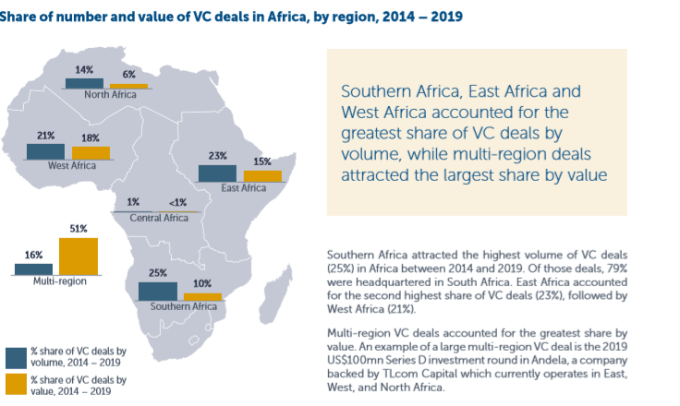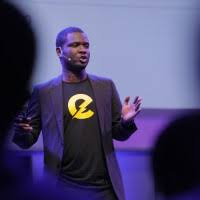Nigerian Mobility Startup MAX Secures $1 Million From Bond Issuance
Investors’ confidence on the mobility startup ecosystem in Nigeria appears to be still surging notwithstanding the recent ban on bike-hailing on major highways in Nigeria’s commercial hub, Lagos. Leading mobility startup Metro Africa Xpress (MAX) has raised $1 million ( ₦400 million) through a one-year fixed rate series 1 bond issue, thereby making a strong statement as the first mobility company in Africa to do so.

“MAX is extremely pleased with the successful Bond issuance, which reflects the market confidence in MAX’s mission, strategy and execution capabilities. This is further evidence that MAX remains at the forefront of technology, financial and business model innovation to solve a fundamental aspect of Africans’ lives,” said Chief Executive Officer and co-founder of MAX, Mr Adetayo Bamiduro.
Here Is What You Need To Know
- The $1 million series 1 bond was issued under the startup’s newly structured $22 million (N10 billion) private company bond programme.
- The bond issuance is coming in the wake of the ban on bike-hailing in Nigeria’s commercial hub, Lagos and shows that investors are still interested in the Nigerian mobility startup ecosystem.
- In 2019, MAX secured a $7 million funding round led by Novastar Ventures, with the participation of Japanese manufacturer Yamaha, Breakthrough Energy Ventures, Zrosk Investment Management, and Alitheia Capital. This was the second and the last VC funding round it ever got before the ban took effect. The startup also recently received $100k in funding from the Harambe Entrepreneur Alliance, a network of entrepreneurs who pool funds together to help another. The funding took MAX’s total funding to more than $9 million.
- Participating in the issuance which was done via a private placement were reputable local and international fixed income investors.
- According to MAX Chief Executive Officer and co-founder, Mr Adetayo Bamiduro, MAX’s bond proceeds will be used to fund its growing asset financing program across two-wheeler, three-wheeler and other vehicle classes in Nigeria and beyond, as the startup continues to institutionalize driver financing across the continent.
What Attracted Investors To MAX’s Bond Despite The Odds?
According to Chief Growth Officer and Co-Founder, MAX.ng, Mr Chinedu Azodoh, the fully integrated and innovative nature of MAX’s driver-vehicle-collection technology stack was essential to demonstrating the startup’s ability to scale and manage an ever-growing pool of financed drivers across 6 cities with unmatched efficiency, speed and agility.
Azodoh, therefore said the bond funding was delivered on the basis of those proprietary technology capabilities that enable heightened levels of portfolio scrutiny and monitoring.
“We are deeply honored by the confidence shown by the investment community in our ability to continue leveraging access to wholesale finance as well as other internal capabilities — including proprietary technology solutions, exclusive vehicle manufacturer deals, low-cost credit, discounted insurance and other financial services — to serve the growing group of overlooked, underserved, unbanked or underbanked Africans like it has never been done before,” Chief Financial Officer, MAX.ng, Mr Guy-Bertrand Njoya said.
Bonds are a way through which a company borrows money from the public. In Nigeria, once you purchase bonds of any type, there is no taxation on the interest earned by you on the bonds.
Investors in MAX’s latest bond issue appear to have also been convinced by the startup’s recent launch of its MAX E Series in Ogun State, south western Nigeria, making it the first mobility startup in Nigeria to launch electric motorcycles.

A Look At What The Startup Does
Founded on August 1, 2015 by the duo of Adetayo Bamiduro and Chinedu Azodoh, Metro Africa Xpress (MAX), is a Lagos-based bike-hailing company that has since pivoted to logistics to adapt to the raging economic disruption caused by the coronavirus. The startup was also among those affected by the recent ban on commercial bike riding in the Nigerian largest city of Lagos, a move that has commercially affected the operations of ambitious bike-hailing startups seeking to help the city solve its lingering transportation problem.
Motorcycle transit ventures are vying to digitize a share of Africa’s boda-boda and Okada markets (the name for motorcycle taxis in East and West Africa) — representing a collective revenue pool of $4 billion (now) that’s expected to double by 2021, per a TechSci study.
Uber began offering a two-wheel transit option in East Africa in 2018, around the same time Bolt (previously Taxify) started motorcycle taxi service in Kenya.
With electric motorcycle taxis in African cities powered by renewable energy becoming a reality, a new stage is set for the continent’s current position in the transformation of global mobility.
Charles Rapulu Udoh

Charles Rapulu Udoh is a Lagos-based lawyer who has advised startups across Africa on issues such as startup funding (Venture Capital, Debt financing, private equity, angel investing etc), taxation, strategies, etc. He also has special focus on the protection of business or brands’ intellectual property rights ( such as trademark, patent or design) across Africa and other foreign jurisdictions.
He is well versed on issues of ESG (sustainability), media and entertainment law, corporate finance and governance.
He is also an award-winning writer

